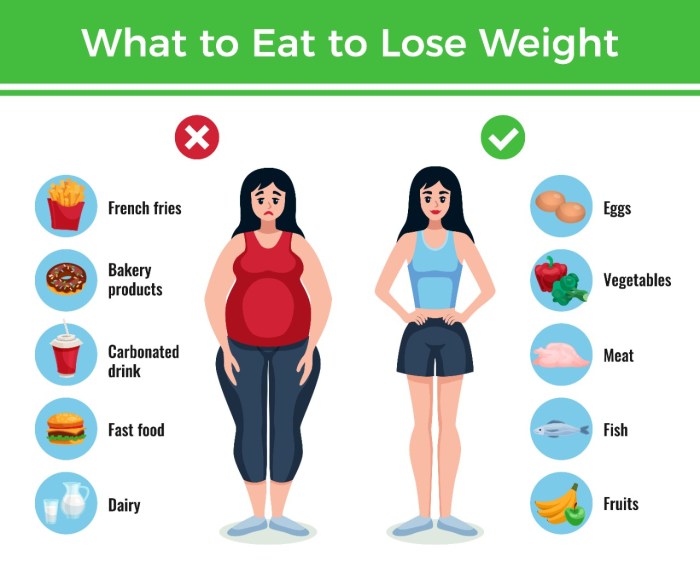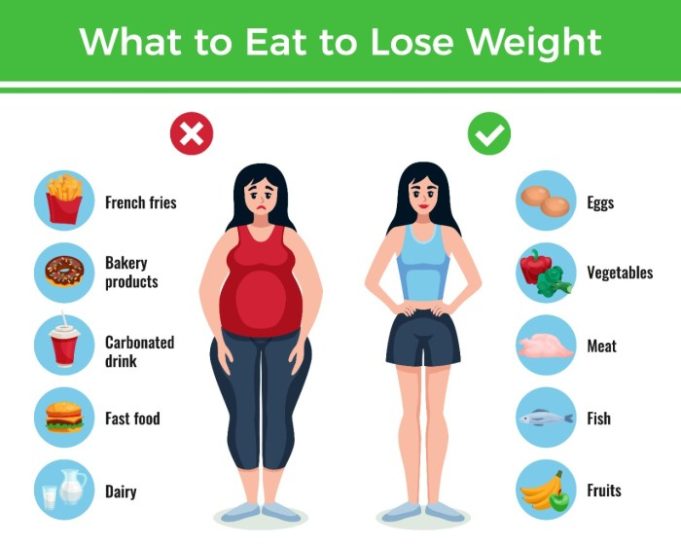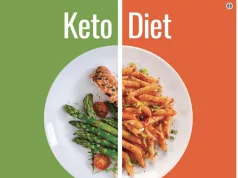Do you need to exercise to lose weight? This is a question many people ask themselves, and the answer is a resounding yes. While diet plays a crucial role in weight loss, exercise is equally important for achieving and maintaining a healthy weight. It’s not just about burning calories; exercise helps boost metabolism, build muscle, and improve overall health.
Exercise can help you create a calorie deficit, which is essential for weight loss. When you exercise, you burn calories, and by burning more calories than you consume, you create a deficit that leads to weight loss. Exercise also helps build muscle, which increases your metabolism, allowing you to burn more calories even at rest. Different types of exercise offer varying benefits. Cardio exercises like running or swimming are great for burning calories, while strength training helps build muscle mass. The intensity and duration of your workouts also play a significant role in calorie expenditure.
The Role of Exercise in Weight Loss
Exercise plays a crucial role in weight loss by increasing calorie expenditure and boosting metabolism. It’s an essential component of a healthy weight management strategy, working in tandem with a balanced diet.
Calorie Expenditure and Exercise
Exercise helps you burn calories, which is essential for weight loss. The amount of calories burned depends on the intensity, duration, and type of exercise. For example, a brisk 30-minute walk can burn around 150-250 calories, while a vigorous hour of running can burn 600-800 calories.
Impact of Exercise on Metabolism
Exercise also boosts your metabolism, which is the rate at which your body burns calories. Regular exercise helps build muscle mass, and muscle tissue burns more calories at rest than fat tissue. This means that even when you’re not exercising, your body will continue to burn more calories due to the increased muscle mass.
Types of Exercise and Weight Loss
Different types of exercise have varying effects on weight loss.
- Cardiovascular exercise, such as running, swimming, and cycling, is excellent for burning calories and improving cardiovascular health. It helps increase your heart rate and breathing, leading to greater calorie expenditure.
- Strength training, such as weightlifting and bodyweight exercises, helps build muscle mass, which in turn boosts metabolism. This leads to increased calorie burning even at rest.
- High-intensity interval training (HIIT) involves short bursts of intense exercise followed by brief recovery periods. This type of exercise is highly effective for burning calories and improving cardiovascular fitness.
Exercise and Calorie Deficit
To understand the role of exercise in weight loss, it’s crucial to grasp the concept of a calorie deficit. A calorie deficit occurs when you consume fewer calories than your body burns. This imbalance forces your body to use stored fat as energy, leading to weight loss.
How Exercise Contributes to a Calorie Deficit
Exercise plays a significant role in creating a calorie deficit. When you engage in physical activity, your body requires more energy to perform the movements. This increased energy demand translates to a higher calorie burn.
Relationship Between Exercise Intensity, Duration, and Calorie Burn
The amount of calories you burn during exercise depends on several factors, including the intensity, duration, and type of activity.
- Intensity: Higher-intensity workouts, such as running or interval training, burn more calories per minute than low-intensity activities like walking. This is because your body works harder during intense exercises, requiring more energy.
- Duration: The longer you exercise, the more calories you burn. For example, a 30-minute run will burn more calories than a 15-minute walk, even if the intensity is the same.
- Type of Activity: Different exercises target different muscle groups and metabolic pathways, resulting in varying calorie burns. For instance, swimming is known to burn more calories than cycling for the same duration and intensity.
To illustrate this, consider a person who burns 2,000 calories per day at rest. If they engage in a moderate-intensity exercise session for 30 minutes, they might burn an additional 300 calories. This creates a calorie deficit of 300 calories, contributing to weight loss over time.
Exercise Beyond Weight Loss
While shedding pounds is a common goal, exercise offers a wealth of benefits that extend far beyond weight management. It plays a crucial role in enhancing both physical and mental well-being, contributing to a healthier and more fulfilling life.
Benefits of Exercise for Physical Health
Regular physical activity is a cornerstone of a healthy lifestyle, contributing significantly to physical health in various ways.
- Improved Cardiovascular Health: Exercise strengthens the heart and improves blood circulation, reducing the risk of heart disease, stroke, and other cardiovascular problems. Engaging in regular physical activity helps lower blood pressure, improve cholesterol levels, and enhance blood vessel function.
- Increased Muscle Strength and Endurance: Exercise builds and maintains muscle mass, improving strength, endurance, and overall physical function. This enhanced strength can help with everyday activities, reduce the risk of falls, and improve balance and coordination.
- Enhanced Bone Density: Weight-bearing exercises like running, jumping, and lifting weights help increase bone density, reducing the risk of osteoporosis and fractures, especially as we age. This is particularly important for women, who are more susceptible to bone loss after menopause.
- Improved Flexibility and Range of Motion: Stretching and other forms of flexibility exercises enhance joint mobility, improve posture, and reduce the risk of injuries. This increased flexibility can also contribute to a better quality of life, making everyday activities easier and more enjoyable.
- Reduced Risk of Chronic Diseases: Regular exercise has been linked to a lower risk of developing chronic diseases such as type 2 diabetes, certain types of cancer, and arthritis. It helps regulate blood sugar levels, improve insulin sensitivity, and reduce inflammation throughout the body.
Finding the Right Exercise Routine: Do You Need To Exercise To Lose Weight
Finding the right exercise routine is crucial for achieving your weight loss goals and maintaining a healthy lifestyle. It’s not just about burning calories; it’s about discovering activities that you enjoy, can sustain, and fit seamlessly into your daily life.
Choosing Activities You Enjoy
Choosing activities you enjoy is essential for long-term adherence to an exercise routine. When you find exercise enjoyable, you’re more likely to stick with it.
- Experiment with different activities: Explore various exercise options like swimming, dancing, hiking, cycling, or team sports. This allows you to discover what truly excites you and motivates you to move.
- Listen to your body: Pay attention to what your body tells you. If you find an activity painful or overly challenging, it’s a sign to try something else.
- Consider your personality: Are you a social butterfly who thrives in group settings? Or do you prefer solo activities that allow you to focus on your own pace? Matching your exercise choice to your personality can increase your enjoyment and motivation.
The Importance of Diet and Lifestyle Changes

While exercise plays a crucial role in weight loss, it’s essential to understand that it’s only one piece of the puzzle. Diet and lifestyle changes are equally important, if not more so, in achieving sustainable weight loss and maintaining a healthy lifestyle.
The Role of a Balanced Diet
A balanced diet is the foundation of weight management. It provides your body with the necessary nutrients while ensuring you consume fewer calories than you burn. A balanced diet emphasizes whole, unprocessed foods, such as fruits, vegetables, lean protein, and whole grains. These foods are rich in nutrients and fiber, which help you feel full and satisfied, reducing the likelihood of overeating.
- Prioritize fruits and vegetables: Aim for at least five servings of fruits and vegetables daily. They are packed with vitamins, minerals, and fiber, which are essential for overall health and weight management.
- Choose lean protein sources: Include lean protein sources like chicken, fish, beans, and lentils in your diet. Protein helps build and repair muscle tissue, which can boost your metabolism and help you burn more calories.
- Opt for whole grains: Choose whole-grain bread, pasta, and cereals over refined grains. Whole grains are rich in fiber, which promotes satiety and helps regulate blood sugar levels.
- Limit processed foods and sugary drinks: Processed foods and sugary drinks are high in calories and low in nutrients. They can contribute to weight gain and increase your risk of chronic diseases.
Sustainable Lifestyle Changes, Do you need to exercise to lose weight
Sustainable weight loss isn’t about quick fixes or fad diets. It’s about making gradual, lasting changes to your lifestyle that you can maintain over the long term. This includes adopting healthy eating habits, incorporating regular physical activity, and managing stress levels.
- Mindful eating: Pay attention to your hunger and fullness cues. Eat slowly and savor your food. Avoid distractions while eating, such as watching TV or using your phone.
- Portion control: Use smaller plates and bowls to help control your portion sizes. Measure out your food to ensure you’re not overeating.
- Stress management: Chronic stress can lead to weight gain. Find healthy ways to manage stress, such as yoga, meditation, or spending time in nature.
- Adequate sleep: Sleep deprivation can disrupt hormone balance, leading to increased hunger and cravings. Aim for 7-9 hours of quality sleep each night.
Consulting Professionals
While exercise plays a crucial role in weight loss, it’s essential to remember that it’s not a one-size-fits-all approach. Consulting professionals can provide personalized guidance and support, ensuring your weight loss journey is safe and effective.
Benefits of Consulting Professionals
Professionals can provide invaluable assistance in creating a safe and effective weight loss plan. They can assess your individual needs, identify potential risks, and guide you towards achieving your goals.
- Personalized Guidance: Professionals can tailor exercise programs and dietary recommendations to your specific needs, fitness level, and health conditions.
- Risk Assessment and Prevention: They can help you identify potential risks associated with exercise and recommend modifications or precautions to ensure your safety.
- Motivation and Accountability: Having a professional to guide you can boost your motivation and hold you accountable for your fitness goals.
- Support and Encouragement: Professionals can provide emotional support and encouragement, especially during challenging moments in your weight loss journey.
Last Point
In conclusion, exercise is a vital component of a successful weight loss journey. While diet plays a significant role, exercise complements it by boosting metabolism, building muscle, and improving overall health. It’s not just about shedding pounds; it’s about feeling better, having more energy, and living a healthier life. Remember to choose activities you enjoy and incorporate them into your routine for sustainable results. Don’t hesitate to consult a healthcare professional or certified trainer for personalized guidance and support.
Answers to Common Questions
Can I lose weight without exercising?
While you can lose weight through diet alone, exercise offers numerous benefits that go beyond weight loss, such as improved cardiovascular health, increased muscle mass, and better mental well-being.
How much exercise do I need to lose weight?
The amount of exercise needed for weight loss varies depending on individual factors like age, weight, and activity level. Aim for at least 150 minutes of moderate-intensity exercise or 75 minutes of vigorous-intensity exercise per week.
Is it better to exercise before or after eating?
Both pre- and post-workout meals have their advantages. Exercising before eating can help burn more fat, while exercising after eating can improve digestion and blood sugar control. Experiment to see what works best for you.
While exercise is crucial for overall health, it’s not the sole answer to weight loss. Many factors play a role, and a holistic approach is often more effective. The how not to diet book provides valuable insights into sustainable weight management, focusing on mindful eating and lifestyle changes.
Ultimately, a balanced approach that combines mindful eating, regular exercise, and stress management is key to achieving and maintaining a healthy weight.
While exercise is essential for overall health and can help with weight loss, you don’t *need* to hit the gym to shed those extra pounds. A simple change in your diet can make a big difference, especially when targeting belly fat.
Check out this easy diet to lose belly fat plan for some inspiration! Of course, combining a healthy diet with regular exercise will maximize your results and help you reach your fitness goals.
While exercise is great for overall health, it’s not always necessary for weight loss. The key often lies in making smart dietary choices. You can learn more about effective strategies by exploring the concept of if diet , which emphasizes mindful eating and personalized approaches.
Ultimately, whether you choose to focus on exercise or diet, the goal is to find a sustainable plan that works for you.
























